![]() — Home — Business News
— Home — Business News
Weekly Business News from Myanmar
-
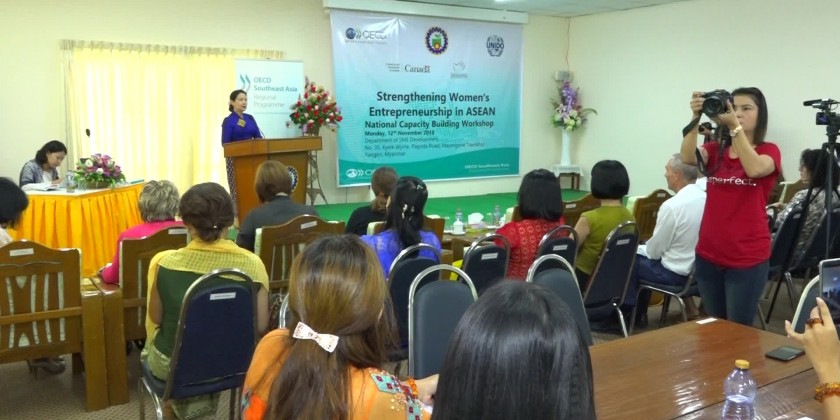
National Capacity Building Workshop on Women Entrepreneurs in Myanmar took place in Yangon to enhance understanding of the challenges faced by women entrepreneurs and possible solutions
“Strengthening Women’s Entrepreneurship in ASEAN” National Capacity Building workshop was held on Monday at Department of DME Development, Ministry of Industry in Yangon. The Ministry of Industry in partnership with the Organization for Economic Co-operation and Development (OECD) and United Nations Industrial Development Organization (UNIDO) organized the national workshop on Women Entrepreneur in Myanmar. Director General, Ministry Of Industry, Aye Aye Win said “Within the country, if we look into the working age ranged 16 to 64, women’s participation in the market is over 40%. However, the percentage which got into international market is only around 10-15%. There are too many smart women in the country; off course there is other who wants to stay simple quite life like public servant. 97%of women out there are doing small business like sewing, making handicrafts and so on. For them to become the strong women, we make this workshop.” -
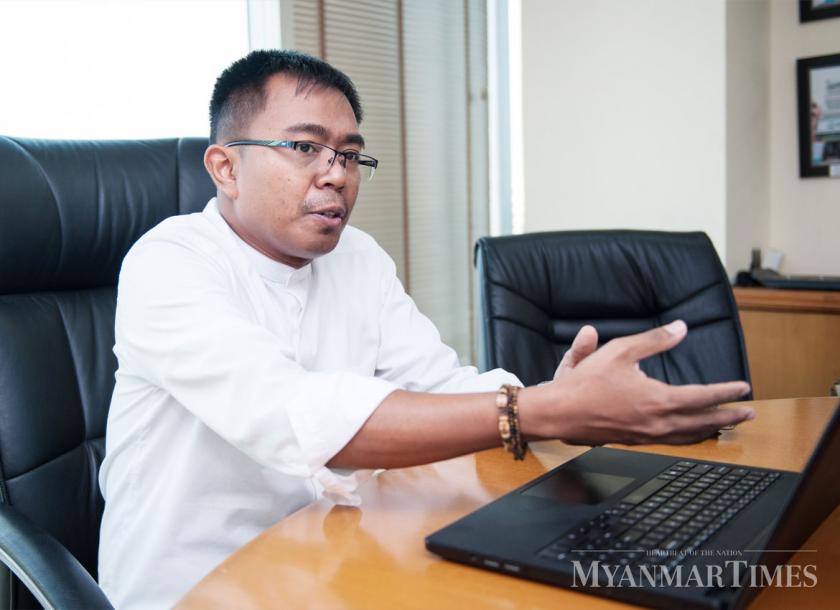
Asia Green Development Bank (AGD) became the first bank in Myanmar to accept smart payment card transactions, or EMV-based Union Pay card transactions in its ATMs across the country
ASIA Green Development Bank has become the first bank in Myanmar to accept EMV-based Union Pay card transactions in its ATMs across the country. In an exclusive interview, the bank said that this is a core part of the bank’s wide-ranging efforts to go cashless and ride on the wave of digitalisation seen elsewhere in the world. In turn, this will provide a safer and more secure financial infrastructure for customers. The bank now accepts EMV-based UnionPay chip card transactions in all its ATMs, becoming the first bank in Myanmar to offer the service. AGD Bank, UnionPay International, Diebold Nixdorf and its local partners, ACE Data Systems, and Myanmar Golden Rock are working together to deliver this new arrangement. -
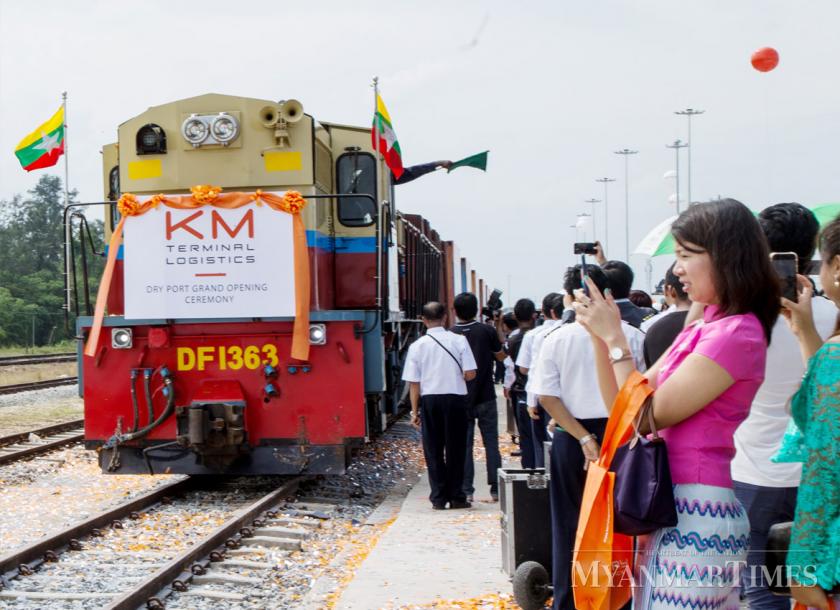
KM Terminal & Logistics Ltd (KM) and Resource Group (RG) opened Myanmar’s first two separate dry port projects in Ywar Thar Gyi, Yangon for business
KM Terminal & Logistics Ltd (KM) and Resource Group (RG) officially opened two separate dry port projects in Ywar Thar Gyi, Yangon yesterday. A dry port is an inland intermodal terminal directly connected by road or rail. Freight trains will run from Ywar Thargyi to a second dry port in Myit Nge, Mandalay, which KM will also own and operate. The company said it invested over US$50 million (K78 billion) in both ports. KM is joint venture company that is 70 percent owned by Kerry Logistics and 30pc owned by Mother Logistics, its local partner. -
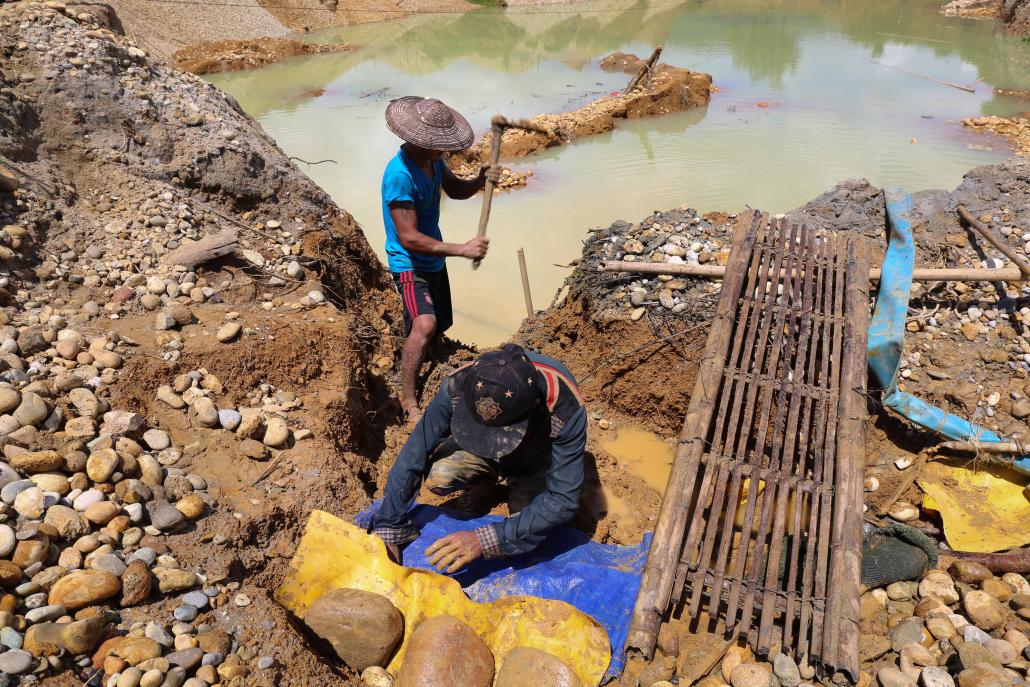
Kachin Government authorities allotted 15 small-scale mining blocks across Kachin State except for Putao District and Tanaing Region
Small-scale mining blocks have been allotted across Kachin State except for Putao District and Tanaing region, according to sources from the state government. A government committee for allotting mining blocks recently held a meeting and decided to allot gold mining blocks in the four districts of the state except Putao District and Tanaing region where survey has not been carried out. -
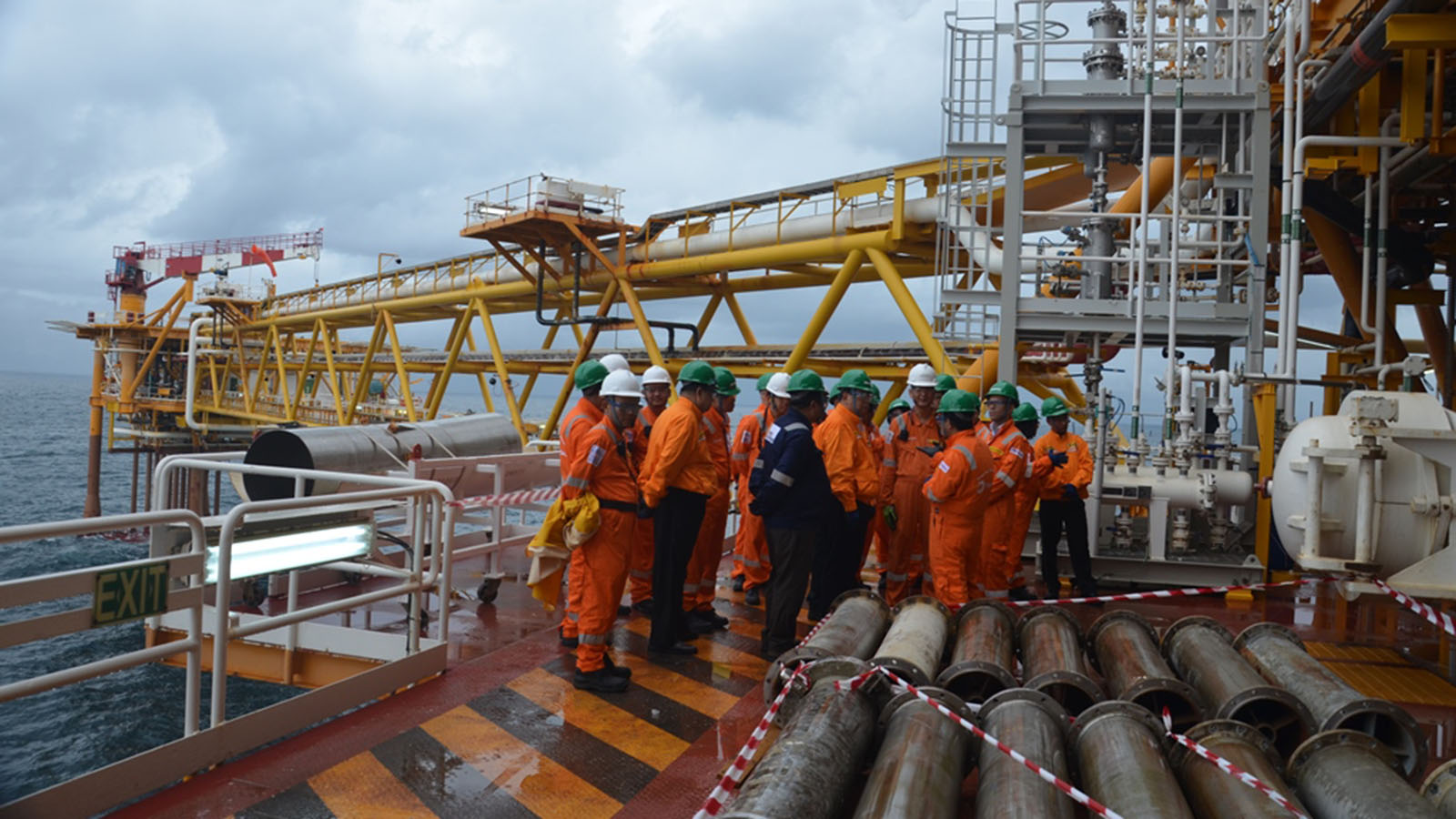
Union Minister for Natural Resources and Environmental Conservation inspected Yadana offshore gas field in the Andaman Sea
Union Minister for Natural Resources and Environmental Conservation U Ohn Win, and Union Minister for Electric and Energy U Win Khaing, inspected the Yadana Off Shore gas field in the Andaman Sea yesterday, and called for operating the gas field without damaging the environment. Also, the two union ministers heard a report about distribution of gas and environmental conservation by officials of the offshore gas field project, as well as from the Managing Director of the Myanma Oil and Gas Enterprise U Myo Myint Oo. Located in the M5 and M6 blocks in the Andaman sea, the Yadana gas field is some 60km offshore from the nearest landfall in Myanmar. -
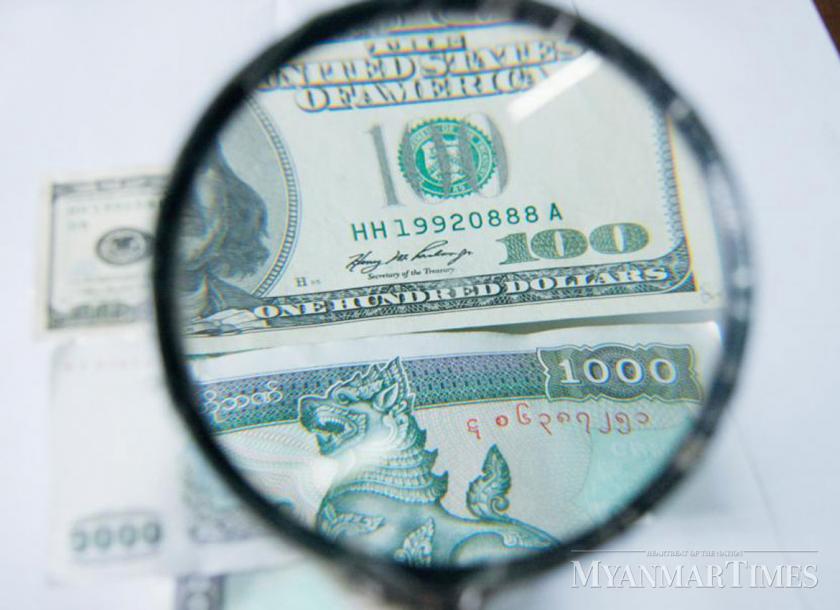
According to the notification No.6/2018 released on 8 November 2018, Central Bank of Myanmar allowed all branch of foreign banks to provide commercial services to local businesses
Foreign banks in Myanmar are being allowed to provide commercial services, setting them on more equal footing with the local banks as the sector implements further reforms, U Soe Thein, Vice Governor of Central Bank of Myanmar (CBM), told The Myanmar Times on November 9. “Financing and lending to local businessesis is now open to all foreign bank branches. As technical matters are involved, further clarifications and details will be released,” he said. According to Notification No. 6/2018 dated November 8, all branches of foreign banks have been given the right to provide financing and other banking services to local businesses. While applauding the move, officials from local banks said the CBM should elaborate on what constitutes “other banking services”. -
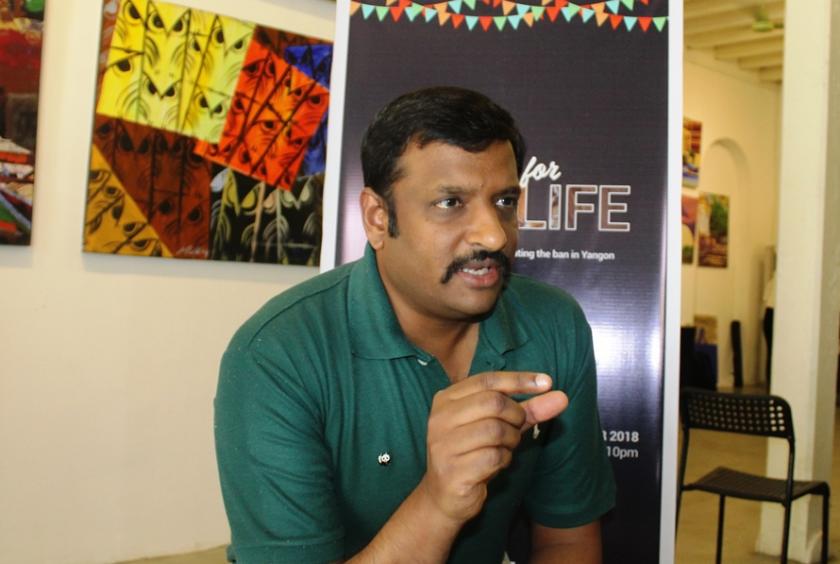
Myanmar government is interested in continuing its ban on all illegal wildlife trade across Myanmar and border areas
Calls for an end to growing wildlife trade in Myanmar’s border areas have positively resulted in arousing the government’s interest to continue its ban on all illegal wildlife sales across the nation, according to Christy Williams, country director of WWF Myanmar. “We see a lot of positive intention to cooperate, and have a very excellent cooperation with the Union government. We stand ready to support Yangon region government’s ban on wildlife sales. The next step is to officially announce this ban nationally, so that the whole Myanmar can be free of wildlife crime,” he said in an exclusive interview. Last month, Yangon became the first city in Southeast Asia to become “illegal wildlife trade free”. In every district and township in Yangon region, anyone caught selling or carrying illegal wildlife products will now face enforcement under the new Protection of Biodiversity and Protected Areas Law enacted in May this year. -
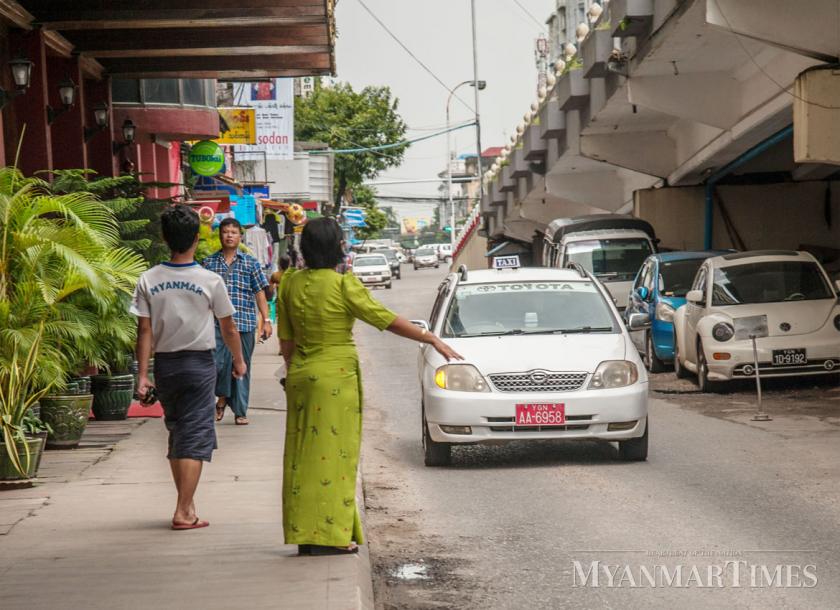
Local taxi companies have been asking the government to set regulations to save local taxi business after they were squeezed by foreign competition
Local taxi companies say they are facing a poor business environment even with the departure of ride-hailing company Uber from Myanmar earlier this year, leaving competitor Grab to dominate the local market. Before Uber and Grab started operating in Myanmar, taxi services were largely provided by two local companies: Hello Cabs and Oway Ride. But four months ago, Hello Cabs cancelled its taxi app because it could not compete with Grab. In fact, local taxi operators have been asking the government to set regulations to help save local businesses, as they are no match for the likes of Grab. -

Alibaba Group plans to grow its business in Myanmar by at least five-fold in the coming six to eight months (Frans Maas, Managing Director of Shop.com.mm)
DRIVEN by rapid gains in smartphone use and people’s willingness to try new things in Myanmar, Alibaba Group plans to grow its business by at least five times in the country in the coming six to eight months, according to Frans Maas, managing director of Shop.com.mm, which is now under the fold of the Chinese e-commerce giant. Myanmar’s biggest online shopping platform was acquired by Alibaba earlier this year. “It is ambitious but we believe it is possible. Even though Alibaba has a very long-term vision, we hope to grow rapidly in this country,” Maas said in an exclusive interview. -
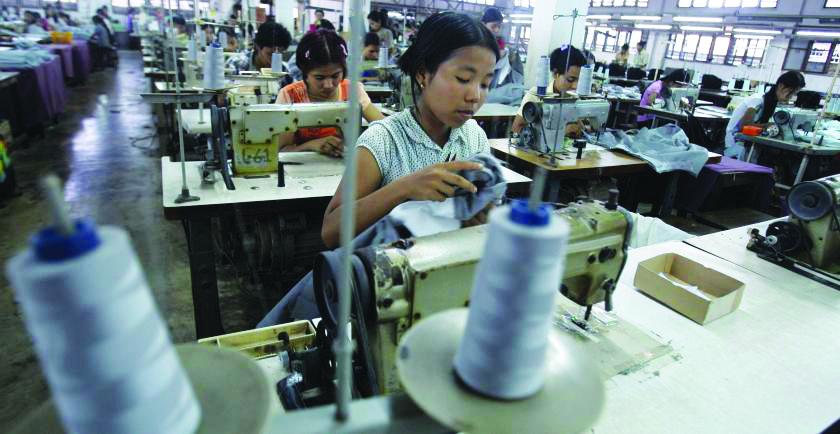
Myanmar expects to increase EU garment exports by 13 percent if Myanmar doesn’t lose GSP
Myanmar expects its garment exports to EU, which is now 47 percent of the total gar-ment export, increased by 13, according to Daw Khiang Khaing Nwe, Joint Secretary of Myanmar Garment Manufacturers Association, at the press conference on Novem-ber 30. “Our exports to the EU from Cut-Make-Pack (CMP) factories account for 47 percent of the total export. In 2018, exports to the EU increased significantly. If we can keep this momentum, the EU will account for 60 percent of Myanmar’s total garment export in 2019,’’she said. Myanmar’s garment sector went flat when the U.S and Western countries imposed economic sanctions. Myanmar’s garment export suffered badly in 2001, and was $400 million, while Vietnam’s garment sector was exporting $1.3 billion worth of garment products.
Business News
Copyright © 2014 Business Information Center All Rights Reserved.







